The Imitation Game. Why Names of New Ministers Mean Nothing
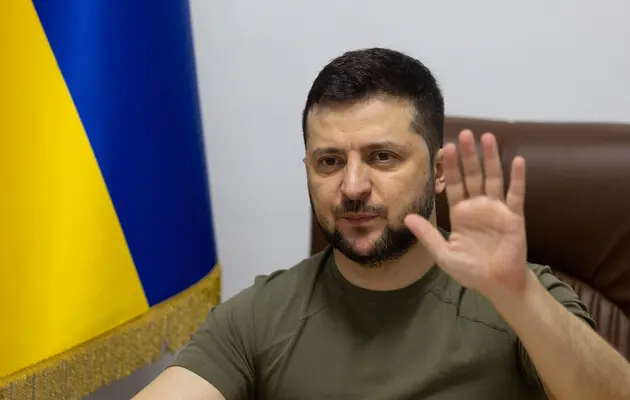
Instead of creating a coalition government having people’s trust and consisting of professionals — an idea that has been discussed in society and political circles at the suggestion of ZN.UA much to Volodymyr Zelenskyy’s annoyance — today the parliament has technically completed the Cabinet of Personal Loyalty to the president. And his inner circle, accordingly.
In fact, when Volodymyr Zelenskyy announced to the whole public that he relies on 5–6 managers to run the country, the president was extremely sincere. Head of the Presidential Office Andrii Yermak, senior advisor to the head of the Presidential Office Daria Zarivna, brothers Vitalii and Vladyslav Vlasiuk, and the presidential HR officer Roza Tapanova are the people who today determine the policy and strategy of the warring state. It would certainly be worthwhile to include in this list Oleh Tatarov as the “sixth man,” who, like a dear godmother, grants all the wishes of his superiors. But the thing is that Tatarov can be replaced at any moment by some Mongolov. And he will do the same thing: fulfill tasks, but not formulate them. This is where the list of people who influence decision-making in the country ends, regardless of what the TOP-100 influence ratings look like and who makes them. Because what comes next is the list of statisticians, intendants and suppliers to the court. Even if officially they are called ministers. That is, all those who can learn about their dismissal from a presidential decree. Or from the TV.
For example, this was exactly what happened with the president’s once very dear deputy head of the office, Kyrylo Tymoshenko. At the last meeting before his dismissal, the president and Tymoshenko “winked as if they were sitting on the last desk at a shop class.” And the next day, the dismissal decree came out. For the president, except for his 5–6 managers, no one means anything. Including the one who brings the honey if he has lost the skill to clean up the pollen. Emotion comes first. Personal attitude. Zelenskyy, like his predecessors, has confused the state with his kitchen. He doesn’t invite strangers to tea. And he kicks those who annoying him out of the door.
So, the personnel reshuffle, which is being vigorously discussed in social networks, is mostly meaningless. The people at the Presidential Office did not attach much importance to the constitutional system of state governance before and have retained their positions. They still believe that everything can be solved opportunistically, through charm and manual control of the law enforcement. Everything useful that is accidentally born inside the executive branch, such as, for example, the development and production of drones (in the third year of the war!), happens unsystematically, without interlocking with other areas, as it should be in a normal management system. Everything resembles our fortifications on the frontline. Of course, it cannot be said that the authorities are only engaged in corruption and sharing dividends. A number of tasks are certainly being accomplished, thanks to people of value who have not yet been randomly washed out of the state apparatus. Where functions are duplicated, people hire their confidants, initiative is not welcomed, loyalty is elevated as the paramount criterion of suitability for civil service, and such negative selection is multiplied throughout the power vertical.
It is fair to say that the system of state administration began to die, of course, not under Zelenskyy, but from the moment Yurii Lutsenko was appointed to the Ministry of Internal Affairs and Davyd Zhvania to the Ministry of Emergency Situations. That was when the professionalism of highest-ranking state officials ceased to matter. While under the Constitution it is the minister who determines the policy and strategy of the ministry. The level of professionalism from has been decreasing president to president, while the level of loyalty has been proportionally on the rise. And now it is just off the scale. The “close circle” under President Poroshenko was no different from the “close circle” under Zelenskyy. All the laws after the Revolution of Dignity concerning the system of state administration and civil service were adopted exclusively under the pressure of the European Union. The partners valued the lives of those who died in Instytutska Street during the Euromaidan, knowing for sure that the state should be built every day, not only when “patience is lost.” And Ukraine did not. Therefore, the main thing then was to pass the right laws, so that later — when the political will is there — the system would work. However, having frantically promised to change everything in this country for the better, the new President Zelenskyy did not open a window of opportunity for the real professionalization of the state administration system. He has bricked it up tightly with the skillful hands of the head of his office. And you don’t think this will make the EU accession negotiation process easier, do you?
Today they dismiss you not because you failed, but because your independence is irritatating. Deputy Prime Minister Kubrakov was dismissed not because he botched regional politics and pushed through a corrupt city planning reform at the request of the Presidential Office itself, but because he had his own relations with the West. (How Kubrakov now uses these opportunities, influencing the donors' policy towards non-governmental organizations and experts in the sphere, is a subject for another conversation). The head of Ukrenergo, Volodymyr Kudrytskyy, who had also saved money for the state, was also dismissed because of his successful cooperation with international partners. But, of course, it will be utilized by other people from the close circle. Independent relations with the West, even if they are working, are inadmissible separately from the Presidential Office. What the latter wants is for all actions to be under its strict supervision and for officials to walk with their hands behind their backs in a circle determined by Bankova. No contacts of your own free will without authorization. Therefore, proximity to the West is always an aggravating circumstance in career matters. But if the West does not like you, like Tatarov, Halushchenko or Shurma, then these people, on the contrary, grow in Zelenskyy’s eyes. That is, the negative attitude of our partners to specific personalities is a benefit. This, however, is also temporary. For instance, the recently dismissed deputy head of the Presidential Office Rostyslav Shurma got lost in a game with Zlochevskyy for the Sakhalinka gas deposit and angered the president. (It’s worth clarifying here that, in addition to this, Shurma, on the one hand, simply turned out to be an extra mouth to feed after building a system of relations of the Presidential Office with the right organizations and people. Relations of the Presidential Office with Ukrnafta and Rinat Akhmetov are in order, Ukrenergo is effectively dealt with, work with Halushchenko was all right even before that thanks to Tatarov, but Shurma improved the alliance. On the other hand, however, against the background of the constant desire of partners to impose sanctions against Tatarov and Shurma, the latter was technologically sacrificed as waste material).
.jpg)
Therefore, it is not surprising that the head of state pays no attention to the atomic games of Herman Halushchenko, head of the Ministry of Energy, who grew up under the wing of the former head of Energoatom and current candidate for a seat in the Russian State Duma, Andrii Derkach. And this is a matter of state security, as are the ongoing activities of Finance Minister Serhii Marchenko, a friend of Yurii Holik, adviser to the head of the Presidential Office. Here everything is perfectly connected and synchronized. Including the scandal with leaks from the National Anti-Corruption Bureau (NABU) to the Presidential Office. To his should be added the latter’s persistent attempts to finish NABU from within by bringing back the fired Gizo Uglava, burying the National Agency on Corruption Prevention in the process. In fact, we are witnessing the fall of the head of the National Agency Viktor Pavlushchyk, whom the Presidential Office masterfully led through a competition with international experts, and now uses him, forcing him to serve the interests of Uglava the "Whistleblower."
So, it is absolutely obvious that after today’s vote in the parliament, “5–6” managers of the president will continue to lead the country on his behalf, trampling not only the Constitution, which enshrines the balance of power in the state, but also common sense. Because an unbalanced system of state governance in times of war is a challenge no less than Russian aggression. As a result, we are fighting off Putin’s authoritarian machine not with a fist, but with widely spaced and in some places already broken fingers, which are cynically pulled by the president’s close circle, whom the Ukrainian people did not elect and did not entrust with such responsibility.
All of that is taking place despite the Constitution, which stipulates direct political responsibility of the Cabinet members appointed by and accountable to the parliament. Even if the names of the new ministers mean nothing to the head of state and his entourage, they are now becoming critically important for the ministers themselves. They will have to make their major choice of values. It is this choice that will go down in the personal history of these top officials, as well as in the history of warring Ukraine. Someone will correct me now, saying, yes, they have already made their choice, agreeing to join the team on pre-agreed terms. They were interviewed. They may not have been checked for relatives in Russia, but they were definitely checked for loyalty, lack of ambition and excessive initiative. However, there always comes a moment when you put your first signature and make the final decision on whom you serve: the state or the monarch. Then it’s the point of no return. And here it is still possible to use the last chance to go down in history, not mess it up.
Therefore, let us highlight the rotations implemented and not implemented by the parliament, as well as the tasks to be solved by the new ministers. Under the “leadership” of the old head of the government, whom the Presidential Office still seems unwilling to replace.
Prime Minister that fits like a glove
For more than a year, there have been talks about the resignation of Prime Minister Denys Shmyhal, including legal arguments that this procedure requires changing the law: the resignation of the prime minister automatically leads to the resignation of the government, which is prohibited during martial law. Against the background of talk about collecting votes for this option (and today’s vote once again confirmed that Zelenskyy has not a mono, but a mini-majority in the Rada), sources were flaunting insider knowledge of the name of the future prime minister.
The main competitors were the current Ukrainian ambassador to the United States, Oksana Markarova, and the First Deputy Prime Minister and Minister of Economy, Yuliia Svyrydenko. In the first case, it is a matter of Western support for the candidacy, as well as the conditions once again put forward by Markarova. On August 19–21, ambassadors met in Kyiv and talked about a possible premiership. According to sources, Markarova could not say no to the president directly, so she raised the issue of her team. She was interested in the whole economic bloc, from the Ministry of Finance and taxation to customs. It is clear that no one would ever give her such a piece. And so it was settled.
Yuliia Svyrydenko is a disciplined executor of Andrii Yermak’s errands. We will reveal a little secret of the kitchen, where the first deputy prime minister is called a “stewardess,” the reason being that the head of the Presidential Office is not entitled to a personal airplane, whereas the first deputy prime minister is. Therefore, Yuliia Svyrydenko is the formal head of the delegation, but her plane is always at the disposal of Yermak. And this tandem was the main problem for David Arahamiia, the head of the Servant of the People parliamentary faction. Although he is not a member of the honorable narrow circle of the president’s managers, he knows how to collect votes in the hall. If he wants to. And collect he did after receiving guarantees that Shmyhal would not be touched. However, the puzzle pieces have also come together.
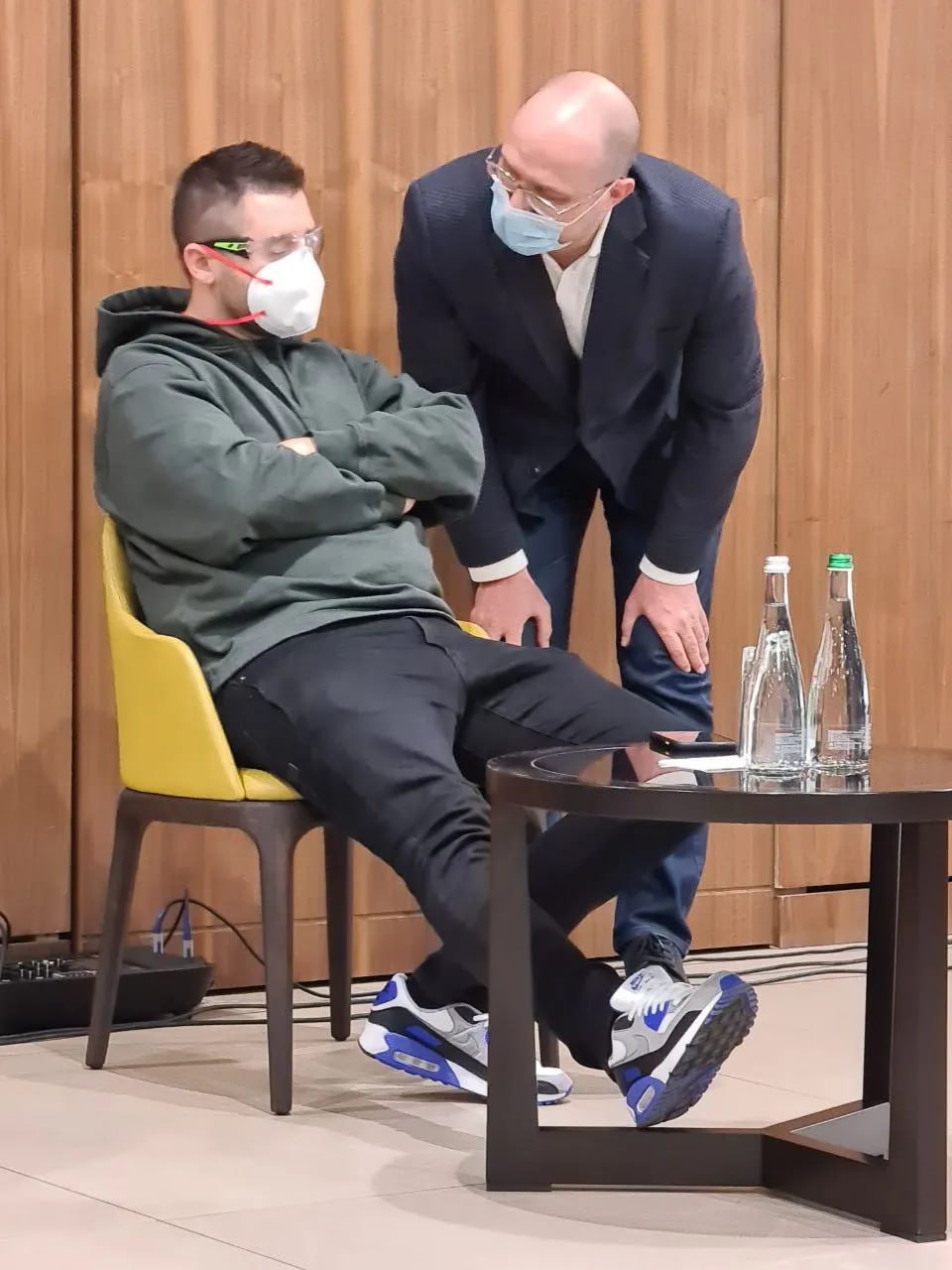
Shmyhal, during the long time of packing his resignation suitcase, has somehow become very comfortable for the Presidential Office. As comfortable as old slippers that fit perfectly on the foot. Yes, Prime Minister has something to pick up, in addition to those mainstream areas, which are controlled by the Presidential Office. He has all the executive power in his hands and will not do himself out of his fair share. The Presidential Office is well aware of this. Some people are annoyed by it, but not critically. So Arahamiia had something to play with and capitalize on. On the contrary, the prime minister, in whose fiefdom the global reshuffle is taking place, has not uttered a word in public — no assessments of the performance of ministers, no reasons for dismissal, nothing... as if he did not exist at all. As a result, the nominal head of the Bankova-controlled structure remained in place. And the program of the government, left unadopted by the parliament for four years (!), will continue to be written in the same place where the first fiddle is played.
The freshly abandoned chairs
The most unexpected and at the same time predictable was the resignation of Foreign Minister Dmytro Kuleba. One can, of course, assume that it is technically better for the authorities not to have two Kuleba’s in one government so as not to get confused. But the matter, of course, is in emotions. This time, however, not of the president, but those of Andrii Yermak. It is clear that Yermak defeated Kuleba long ago, completely nullifying the influence of the Foreign Ministry on the formation of the country’s international policy. Kuleba sometimes made mild attempts of resistance, but they were very quickly dealt with by the head of the Presidential Office. That said, Yermak did not manage to wipe out the charisma of Kuleba, who was prone to brilliant self-promotion, something the president was quite fond of. Therefore, at some point he correctly went to the president after Kuleba, and Kuleba was gone, albeit at the second attempt. “Yesterday, members of the Opposition for Life party went out for a smoke and there were not enough votes, so the vote for resignation was postponed to today,” clarifies one of our interlocutors.
Now let’s consider the opinion that Kuleba’s resignation was the result of his failure to obtain authorization to use long-range weapons. As a matter of fact, this is the president’s job. Of course, the president can engage everyone else, which he has publicly done. But it’s Zelenskyy, first and foremost, who has failed to complete this task, even though it is not his fault, but that of the partners. Still, who is interested in having an honest dialog with society, if you can just shift the responsibility to the shoulders of someone who should stop getting underfoot in the kitchen.
As for the appointment of the new Foreign Minister Andrii Sybiha, since the ministry has long been relegated to the secondary rank, it is understandable that they would never put anyone there who could upset the balance formed under Yermak and Zelenskyy. Sybiha is a universal soldier of the Presidential Office. He was prudently moved from Bankova to the chair of the first deputy minister back in April. He is a professional, who, unlike the completely pro-Western diplomat Kuleba, will meekly put eggs in the baskets that Yermak and Zelenskyy will point to. And today they are interested in the BRICS countries: China, India, Turkey, Saudi Arabia and others. That said, Sybiha will always play second fiddle and try not to be an irritant — including by not asking why ambassadorial posts are handed out by the Presidential Office either as a reward for loyalty after resignation from the main job (as in the case of former Prosecutor General Venediktova, who saved Tatarov from a criminal investigation) or as an attempt to deal with a competitor by taking him out of the national information field (our regards to General Valerii Zaluzhnyi). Truth be told, the new minister has an opportunity to work for the country and give the rector of Kyiv National Taras Shevchenko University a sound financial advice: to liquidate the Institute of International Relations. Being a member of the close circle in Ukraine is an occupation; being a diplomat is not.
The resignation of former Justice Minister Denys Maliushka was met with the applause of parliament and positive reviews of his activities, including from specialized non-governmental organizations. Maliushka has long dreamed of a vacation and the ambassadorial post, by the way, in some nice country. Rumor is it will happen. His work in the ministry will be continued by former Deputy Prime Minister for European Integration, and now Minister of Justice Olha Stefanishyna. It is unlikely that she will be able to surpass Maliushka’s performance, but she will have to make a step in organizing the work of the ministry to ensure the success of negotiations with the EU. According to experts, “it is important that the new head of the Ministry of Justice and the entire apparatus of the ministry be focused exclusively on the functions of policy making, particularly on legal approximation and European integration.” However, for this purpose it is necessary to deprive the Ministry of Justice of administrative powers, i.e., the functions of administering current affairs. We are talking about the real transfer of these powers to the communities, which Maliushka did not do in opposition to decentralization. Power and budget matter.
Oleksandr Kamyshin has been appointed presidential adviser on arms and infrastructure. The head of Ukroboronprom, Herman Smetanin, has been appointed minister of strategic industries. Described as a good manager who worked at not-so-successful enterprises of the defense industry, he was sent to Ukroboronprom with the aim of reforming the concern. The appointment was coordinated by Kamyshin himself. We do not know whether the new minister will have enough organizational skills for an entire ministry, but we will assume that as a result of his activities, the ministry may become more orderly and systematic, and certainly less focused on publicity.
The new Minister of Ecology, Svitlana Hrynchuk, has been in public service since 2016. She kept growing and growing until she finally grown into high office. Since Hrynchuk has always been involved in climate change and environmental issues, she has close ties with international organizations and experience in project implementation. International partners know her very well. There is a caveat though. As deputy to Energy Minister Herman Halushchenko, she headed the office of reforms, and this certainly does not adorn her resume: reforms in the Ministry of Energy last year were nowhere to be seen. What we did see was arbitrariness, concentration of power and abuse at all levels. There is a greater risk that we got a showcase for Western partners, while other people will manage the back room.
As for the Ministry of Reintegration of Temporarily Occupied Territories, which until yesterday was headed by Iryna Vereshchuk, it was left without a minister and has the prospect of merging into the Ministry of Regional Development.
Not an acting minister anymore
Five ministries in the government were headed by unknown officials in the capacity of acting ministers, some of them for years, as was the case with the Ministry of Culture. But this list includes two of the most sensitive ministries, because of which the overall staff chessboard of the Presidential Office did not add up for a long time.
Firstly, it’s the Ministry of Community Development, Territories and Infrastructure (abbreviated as the Ministry of Regional Development), which has been bare for four months. Deputy Prime Minister Kubrakov’s resignation took place against the backdrop of a statement by a parliamentary committee and a Rada resolution on Kubrakov’s failure in regional policy and the need to split the ministry, bringing back the old configuration: the Ministry of Regional Development and the Ministry of Infrastructure. For some time, the main contender for one of the portfolios was the former head of the Ministry of Regional Development and current head of Naftogaz of Ukraine, Oleksii Chernyshov. However, he had an obligatory condition: the prefix “deputy prime.” The deal almost took place, but the game was broken by a journalistic investigation, where Chernyshov’s name appeared in the NABU criminal case. Information about searches of the applicant for such an influential position, as well as his meeting with the NABU director, which journalists insisted on, practically put an end to both the prefix and Chernyshov’s return to the ministerial status.
That is why Oleksii Kuleba, now the former deputy head of the Presidential Office for regional policy, became the minister of community development, territories and infrastructure. His appointment looks one of the most logical in this personnel history. He is well-versed in the subject and aware of it. Whether he has a personal share in the business is a question. However, the puzzles were being put together for a long time in connection with the multitasking of the ministry and slackness of the Ministry of Reintegration: according to the managerial logic, it is about the development of territories, and therefore should be part of the Ministry of Regional Development.
“As for the developments with the ministry, this is the first step,” said the head of the specialized subcommittee of the Verkhovna Rada, Vitalii Bezhin, answering in his post the question that trips off the tongue. “The second step will be the mutual integration of the Ministry of Regional Development and the Ministry of Reintegration. And the part of the current Ministry of Reintegration responsible for infrastructure will soon get its own minister and will be separated.”
However, I have another question: who will get the construction? If we continue to follow the stated logic, it should go to the Ministry of Infrastructure. Then the Ministry of Regional Development will become the ministry that forms regional policy. And the Ministry of Infrastructure and Construction will be its arms, which implements the state regional policy through infrastructure and construction projects. It remains to be seen what happens next. The same is related to how, if the construction sphere finally falls under the remit of the Ministry of Regional Development, Oleksii Kuleba will cope with the marker case 5655, which is being promoted by Olena Shuliak, head of the Ministry of Regional Development, with the tacit consent of the Presidential Office. Until now, he has defiantly distanced himself from any public scandals, not making his position clear. This is not how it works when you sit in the minister’s chair.
Secondly, there was a serious struggle for the Ministry of Agriculture. First Deputy Minister Taras Vysotskyi, a protégé of big agrarian business, remained the main candidate for a long time. The acting minister was coping with the land-related and other strategies laid down by the ex-minister Mykola Solskyi, who is now a NABU defendant. Who, according to detectives, back in 2017–18, took possession of land worth hundreds of millions, having pulled off machinations with the State Cadastre. However, both Solskyi and Vysotskyi clearly followed the fairway laid out for the state by big business, turning our agrarian economy into an Argentinean or Brazilian version and destroying rural communities, which are the majority in Ukraine, along the way. The development of these communities depends on whether there will be an opportunity to develop small farming business in the countryside, which means creating jobs.
However, the new minister is Vitalii Koval, a man who worked in Ihor Kolomoiskyi’s agricultural business and then in his construction companies. The new minister is well known to Timur Mindich, now one of Yermak’s land consultants. And it was Mindich who lobbied for Koval’s appointment. That is, this is no longer Kolomoiskyi’s man, but a minister who will do what is necessary for those to whom he owes his appointment. Technically, Koval moved into the minister’s chair, leaving the office of the head of the State Property Fund, where he did not prove himself in any way. Even by the very modest standards of the previous heads of the Fund. It is unlikely to be any different in the Ministry of Agriculture. But quality is not the point here since this man is a member of the close circle. At the same time, the Pavliuk brothers remained dissatisfied; they had long blocked the appointment of Koval, with whom they had a long-standing conflict.
The Ministry of Culture has finally found its chair. We will see whether he fits into it. However, the main task for career diplomat Mykola Tochytskyi, who moved to the Ministry of Culture and Information Policy from the chair of the deputy head of the Presidential Office, was named by the head of the Servant of the People faction, Davyd Arahamiia: fight against misinformation. Tochytskyi is one of Ukraine’s most brilliant diplomats. But judging by the fact that during all the years of the war he has not caused irritation towards him from neither Yermak nor Zelenskyy, then in the package with a flexible mind he also has a flexible spine. Therefore, it is very important that no confusion should arise in the mind of a minister professionally distant from culture and the sphere of information, and that the ministry headed by a diplomat should not start fighting with information inconvenient to the president.
Nataliia Kalmykova, former Deputy Minister of Defense, has been appointed Minister of Veterans Affairs. People who know her from previous work characterize the new minister as follows: “She said it — she did it. I see the goal — I see no obstacles. This is a very successful appointment for the Ministry of Veterans Affairs and a loss for the Ministry of Defense.” Kalmykova successfully completed the Fulbright Research and Development program at the State University of New York at Buffalo. Her research topic was “Female leadership in the military,” collaboration with veterans’ organizations, U.S. government agencies, Syracuse University, and the Institute for Veterans and Military Families. So she is quite conversant with the topic. It’s just a pity that one of the few paths of bureaucratic clarity will be overgrown after Kalmykova’s departure.
The Youth and Sports Ministry will be headed by Matvii Bidnyi, who has worked in the ministry in various positions since 2020. His father-in-law is Party of Regions politician Hryhorii Dashutin. In the summer of 2022, the State Bureau of Investigation detained Dashutin after it became known that his company had been providing products to the Russian military-industrial complex since 2014 and continued supplying them after the full-scale invasion on February 24, 2022. “I am not going to be held responsible for his actions,” the newly appointed minister said at the time. “I believe that everyone should be responsible for their actions, especially at a time like this, when, as I said, the price of such an act is very high. So let the investigation go on. If it turns out that he really committed a crime, he should be held accountable for it, just like each of us.”
...It is obvious that the government has refused to imitate both essence and form and has not resorted to a global reformatting of the Cabinet of Ministers, reduction of the number of ministries, their functionality, etc., which has been repeatedly announced. And this is fine in itself. However, it should be realized that it is impossible to qualitatively change the situation in the system of state administration, including in the army. As long as the tasks and decisions are made by these very people, who have this vision of state management and this taste for selecting personnel. Of course, people who, again by chance, become more effective than their predecessors could be appointed ministers. Just as Mykhailo Fedorov once got in by accident. Or Kubrakov, until he became the head of a monster ministry and could neither qualitatively nor quantitatively handle its scale. Because we are not talking about a systematic approach and conscious choice. Perhaps, Kalmykova will accidentally be a success now. Most likely, Kuleba will put things in order in his ministry. If he can cope with the choice of values put before him as well.
We cannot elect a new government and form a new professional cabinet at the moment because of the war. But we are still holding up. The question is, what allows us to keep holding up and how we are going to defeat Russia. Honestly? I don’t know... Perhaps the horizontal and self-organization in communities, in the army, in society, on which the Ukrainian state institutionally stands, plays its role. And this is the phenomenon of Ukraine’s survivability. It means that each of us is facing a choice of values right now. Everyone’s contribution matters. And everyone’s last name matters. No matter what place you occupy. Especially if it is a minister’s chair.
I would love to be wrong in my assessments and predictions. And I will be glad if it happens. After all, it only takes two conscientious and professional people in the government to stop utterly stupid or illegal and unprofitable steps that do harm to the country.
Read this article in Ukrainian and russian.
Please select it with the mouse and press Ctrl+Enter or Submit a bug










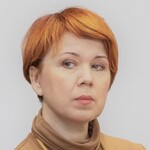
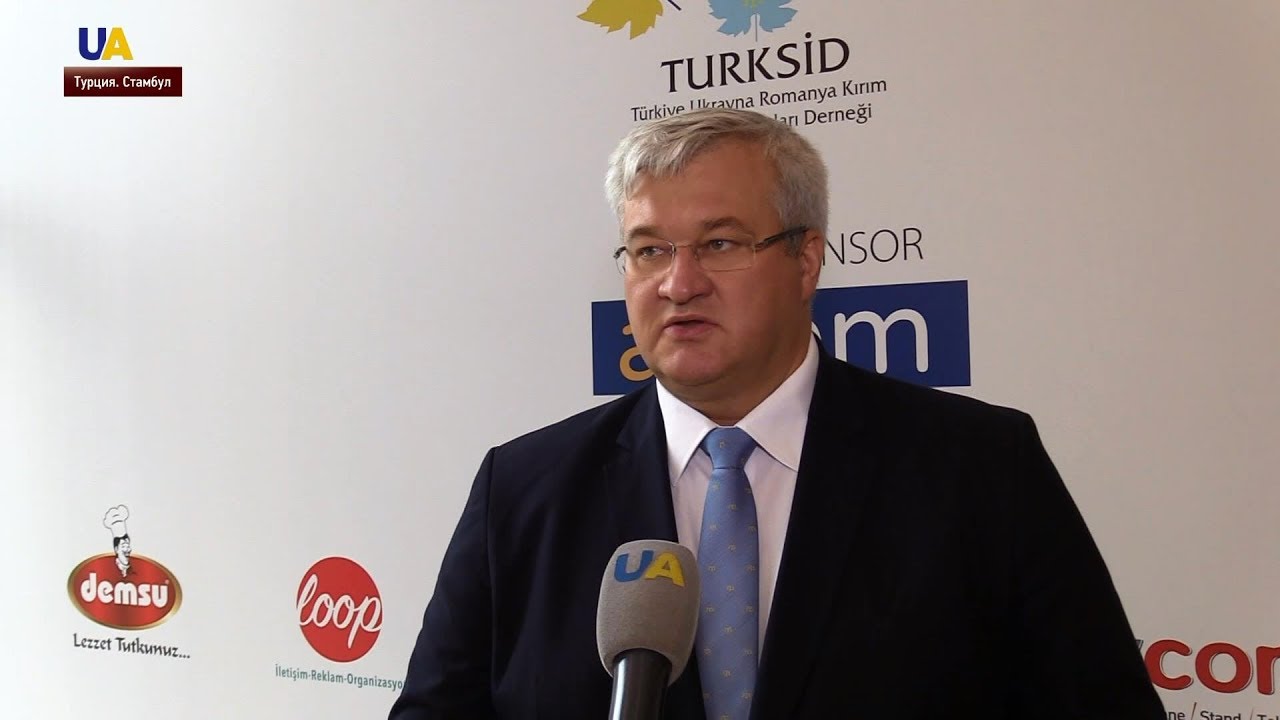
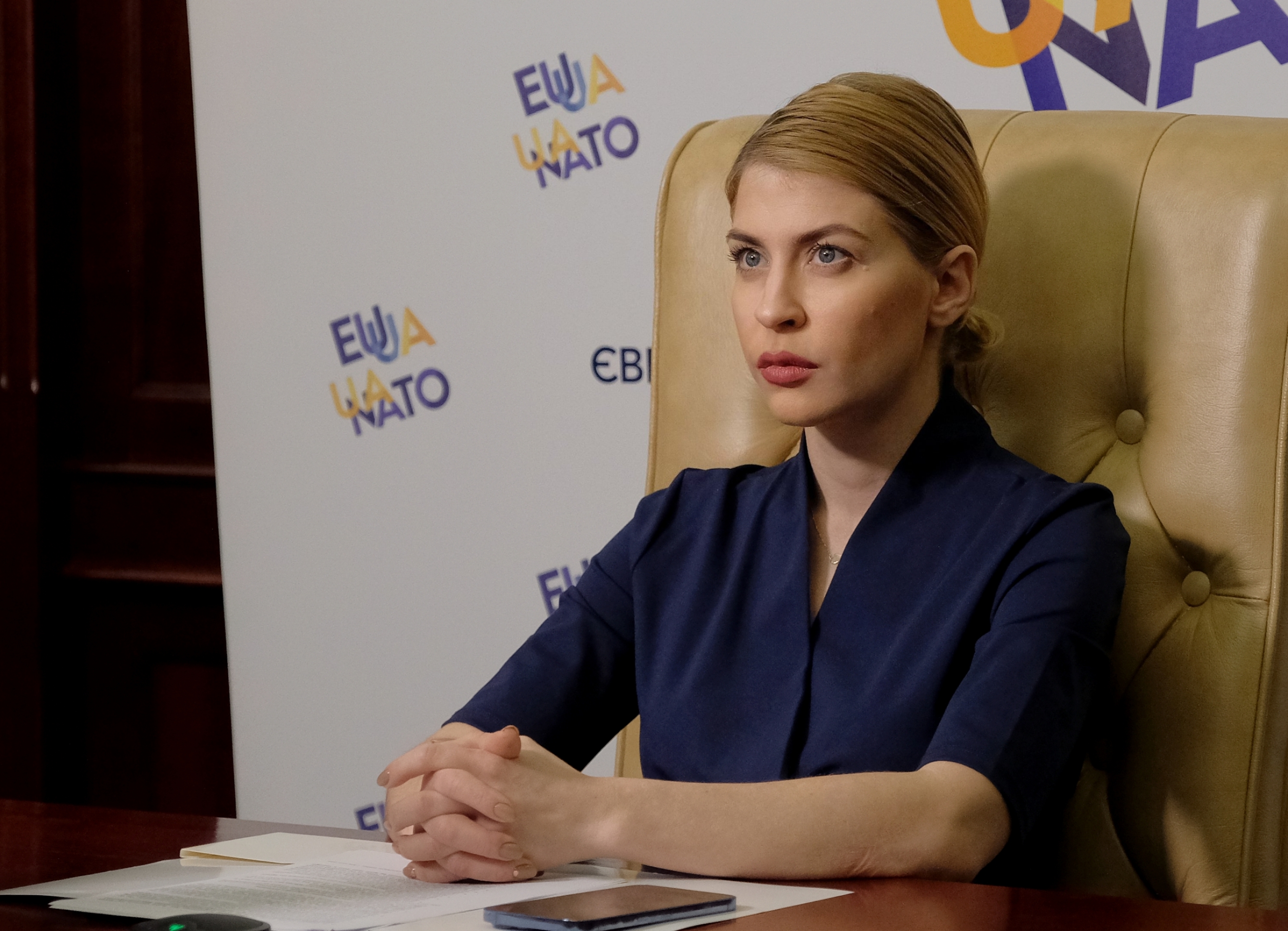
.jpg)
.jpg)
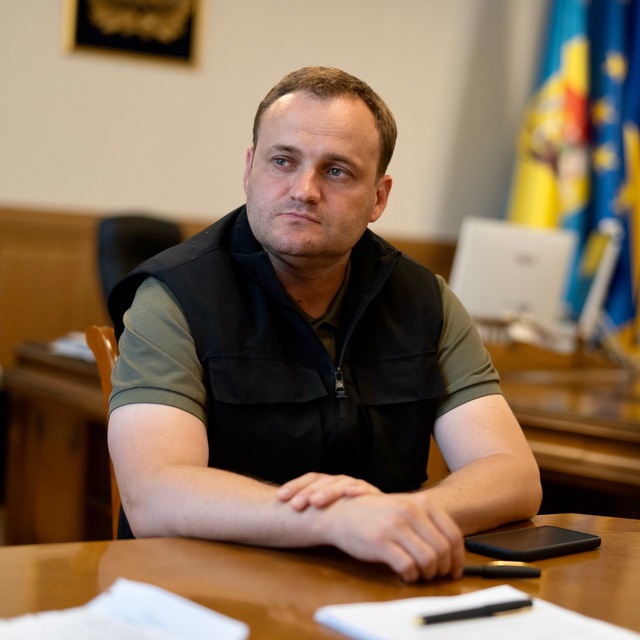
.jpg)
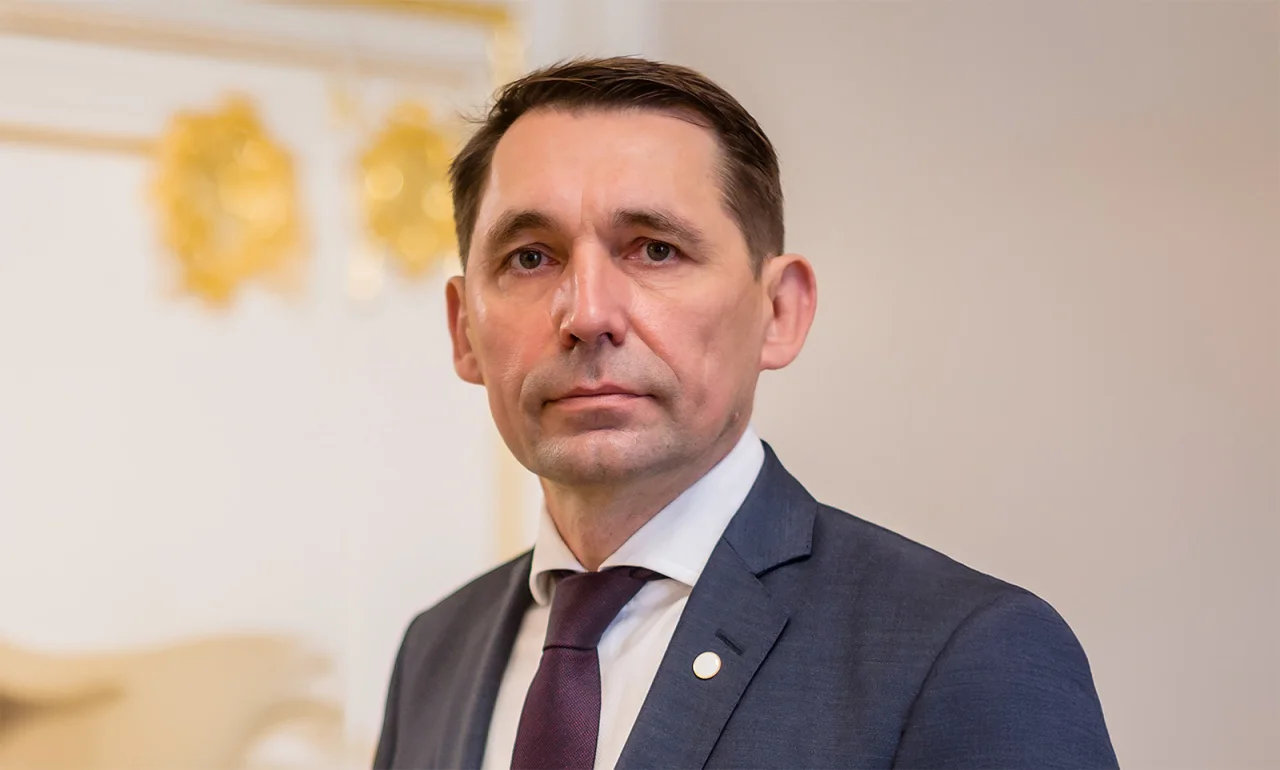
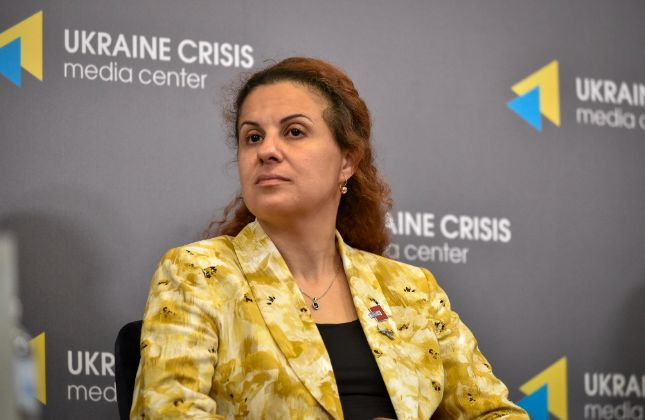
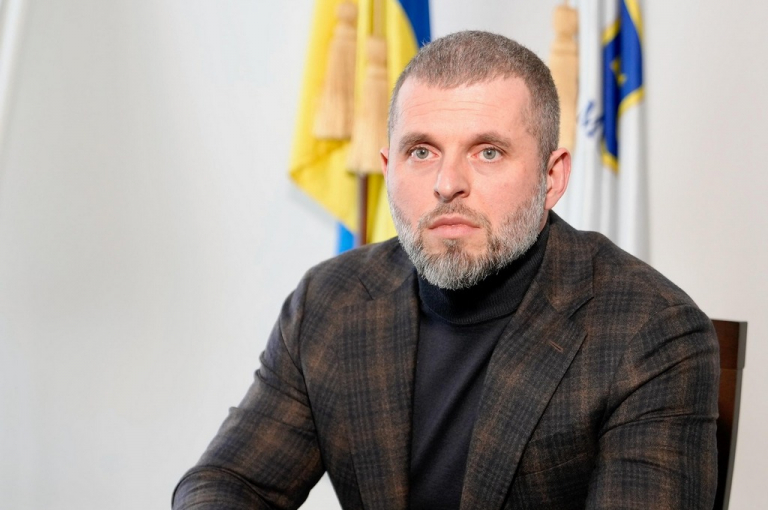
 Login with Google
Login with Google